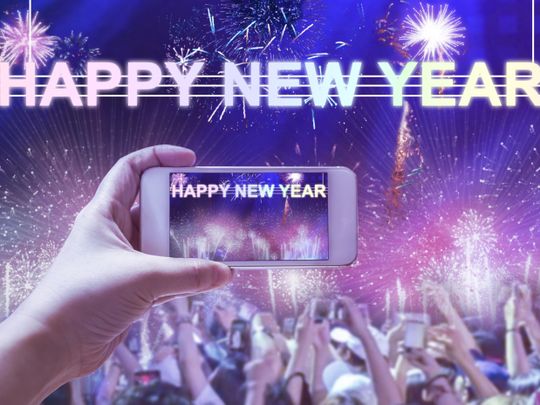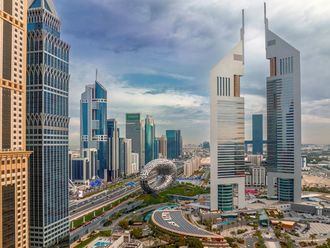
Dubai: Goodbye 2022. Hello 2023. Clearly, the buzzwords now, nothing, not least the resounding night-long revelry, can take away from their symbolism as reflections give way to resolutions, and people everywhere mark what is perhaps the most overwhelming celebrations in the world.
Unlike personal occasions like birthdays and anniversaries or culture-specific events and festivities, the New Year is the only universal celebration. It cuts across all social, economic and geographic boundaries.
But beyond the obvious and ubiquitous, what is it that makes the New Year such a big deal?
According to psychologists, an old year morphing into a new one primarily signifies the renewal of hope. Never mind what transpired in the year gone by, we look at the New Year as a clean slate, wishing that our fond dreams turn into fonder reality in the months ahead.
It is towards this end that our resolutions are geared. Lose weight, quit smoking, pay off debts, save money, travel more – we resolve to achieve many things, even though we may not always live up to those promises. Going by past experience, that is almost a given.
New chance to hope
Yet, we cling to a new chance to hope. At the root of this psyche, say psychologists, is not only an urge to survive but also exercise more control over our lives as we transition from a known past to an unknown future.
So, needless to say, bringing on a wishful future warrants a celebration. As revelers invoke the New Year, they party all night long, enjoy a hearty feast and watch the fireworks, all of which are perceived to symbolise joy, well-being and good fortune.
History is replete with references to the New Year.
According to History.com, Julius Ceasar of Rome instituted January 1 as the first day of the New Year, “partly to honour the month’s namesake Janus, the Roman God of beginnings, whose two faces allowed him to look back into the past and forward into the future”. This was evidently done as part of a reform to align the Roman calendar with the Sun by adding 90 extra days to the year 46BC. The Romans apparently marked the day by offering sacrifices to Janus, exchanging gifts with each other, dressing up their homes and hosting lavish parties.
Common traditions
Over the years, communities began to celebrate the New Year with their own customs – whether it was the Spanish eating 12 grapes before midnight, the English singing Auld Lang Syne, the Brazilians offering white flowers to their water deity, the Japanese eating soba noodles or the Americans watching the ball drop at midnight at New York’s Time Square.
The spirit behind the celebrations, irrespective of the traditions, remains the same: To break away from the past and embrace an all-new future. And somehow, it is New Year Day, more than any other day in the year, that makes the realisation of our best wishes more plausible.
That perhaps also explains why we make it a point to say Happy New Year.













